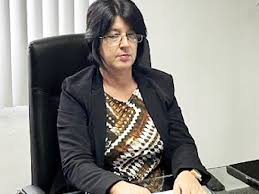Cuba’s labor minister, Marta Elena Feito, resigned on Tuesday following widespread outrage over her comments downplaying the severity of poverty in the country. Feito, who also oversees the social security system, sparked the controversy when she claimed that people seen rummaging through garbage bins in Havana were not genuinely poor, but were merely “pretending” to be beggars.
Cuba, which is currently struggling with extreme economic hardships, including runaway inflation, food shortages, and low wages, has seen a rising number of people turning to begging and eating from trash bins. These scenes have become common in the capital city, especially in areas where poverty has hit hardest.
During a parliamentary committee session on Monday, Feito dismissed the visible poverty by saying, “When you look at their hands, when you look at the clothes those people are wearing, they are disguised as beggars. They are not beggars. In Cuba, there are no beggars.” Her remarks were broadcast live on state television and quickly drew sharp backlash from social media users in the country, who shared images of individuals scavenging for food from dumpsters.
Cuban President Miguel Díaz-Canel also criticized Feito, accusing her of being out of touch with the reality faced by ordinary Cubans. On X (formerly Twitter), the President wrote that “none of us can act with arrogance or pretension, disconnected from the realities we live in.” He emphasized that beggars are a clear sign of the country’s deep social inequalities.
Feito acknowledged her mistake and stepped down, admitting that her comments reflected a lack of “objectivity and sensitivity.”
The controversy comes at a time when Cuba is grappling with its worst economic crisis in three decades, exacerbated by food and medicine shortages, frequent power outages, and the long-lasting effects of U.S. sanctions. In 2024, Cuba’s economy shrank for the second consecutive year, with a 1.1% contraction after a 1.9% drop in 2023. The situation has resulted in an increasing number of homeless individuals and families living in “vulnerable” conditions, with many depending on social assistance programs.
Last year, the Cuban government reported that nearly 189,000 families and 350,000 individuals were living in precarious situations. These statistics highlight the country’s growing poverty levels, which many attribute to a mix of domestic economic mismanagement, the impact of U.S. sanctions, and the devastation caused by the COVID-19 pandemic, which severely hurt Cuba’s crucial tourism sector.



